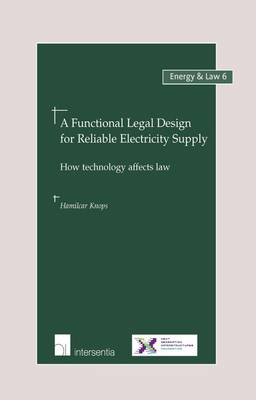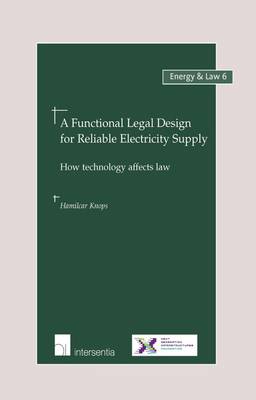
- Retrait gratuit dans votre magasin Club
- 7.000.000 titres dans notre catalogue
- Payer en toute sécurité
- Toujours un magasin près de chez vous
- Retrait gratuit dans votre magasin Club
- 7.000.0000 titres dans notre catalogue
- Payer en toute sécurité
- Toujours un magasin près de chez vous
A Functional Legal Design for Reliable Electricity Supply
How Technology Affects Law Volume 6
Hamilcar KnopsDescription
The liberalisation and international integration of electricity markets have led to a dramatic increase in the complexity of the electricity sector. Rather than hierarchical control, it is the legal framework ('rules of the game') that determines the behaviour of actors such as power generators, traders and network operators. Because of the unusual technical and economic characteristics of electricity markets, their performance is very sensitive to the formulation of the legal framework. Still, a structured approach to formulating the legal framework has not yet been developed. This book meets this demand.
Many questions need to be answered in the design of a legal framework for the electricity industry and often they are interdependent. This study proposes a design method for the analysis and design of the legal organisation of a technically complex sector such as the electricity industry. The method takes into account the relevant policy goals, legal constraints and technical characteristics. While the method is developed for electricity markets, it can be applied to other technically complex infrastructures as well.
The proposed method is applied to several critical cases, such as the security of electricity supply, operational security in large networks, congestion management and the question how to deal with merchant transmission investment. In addition to validating the proposed method, these case studies offer a wealth of practical information about the policy choices for restructuring the electricity industry. This makes this book a rich resource for anyone interested in the design of electricity markets.
Spécifications
Parties prenantes
- Auteur(s) :
- Editeur:
Contenu
- Nombre de pages :
- 566
- Langue:
- Anglais
- Collection :
Caractéristiques
- EAN:
- 9789050957809
- Date de parution :
- 25-01-08
- Format:
- Livre broché
- Format numérique:
- Trade paperback (VS)
- Dimensions :
- 165 mm x 240 mm
- Poids :
- 929 g

Les avis
Nous publions uniquement les avis qui respectent les conditions requises. Consultez nos conditions pour les avis.






